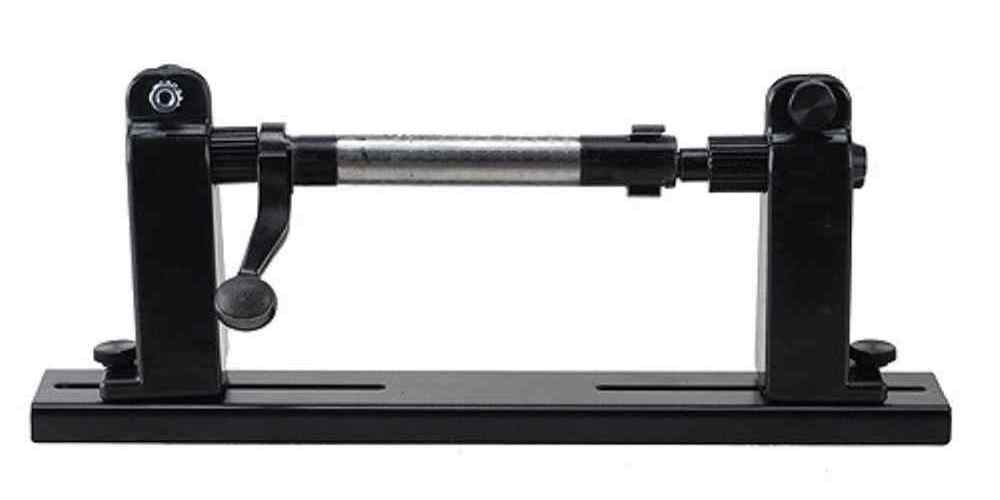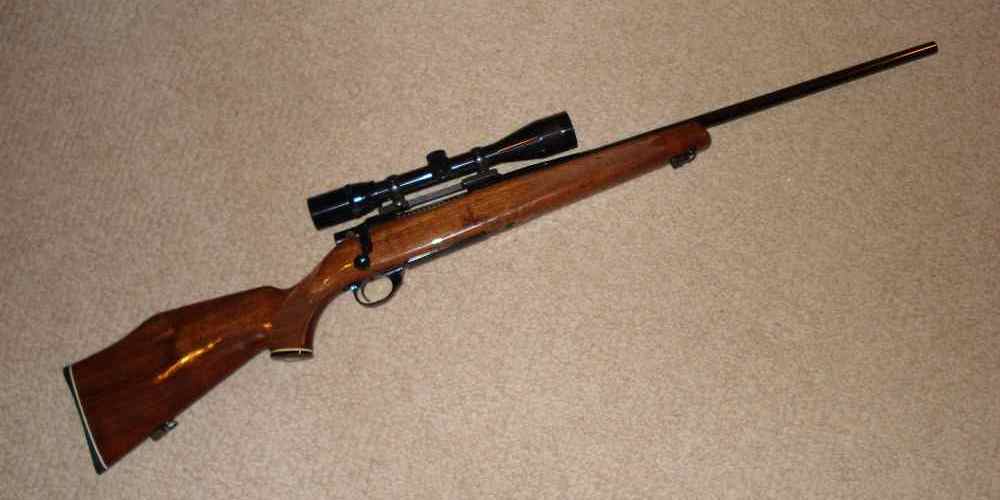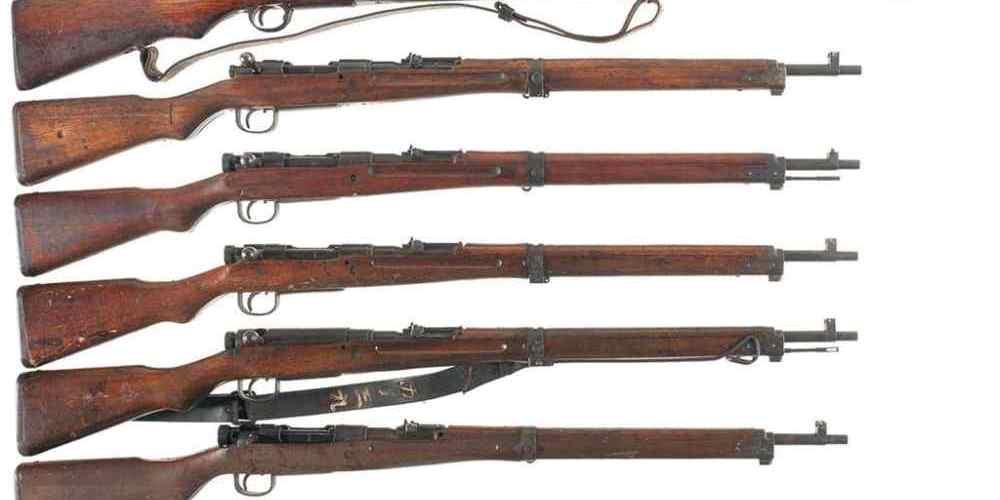“Lighter bolt weight, smoother rifle handling.”
Impact of Bolt Weight on Rifle Balance
When it comes to rifle handling, every little detail can make a big difference. One often overlooked factor is the weight of the bolt. The bolt is a crucial component of a rifle, responsible for loading and ejecting cartridges. But how does its weight affect the overall balance and handling of the rifle?
The weight of the bolt can have a significant impact on how a rifle feels in your hands. A heavier bolt can help to stabilize the rifle, reducing recoil and improving accuracy. On the other hand, a lighter bolt can make the rifle feel more nimble and easier to maneuver. Finding the right balance is key to achieving optimal performance.
One of the main ways in which bolt weight affects rifle handling is through its impact on the rifle’s balance. A heavier bolt can shift the center of gravity towards the rear of the rifle, making it feel more stable and easier to control. This can be particularly beneficial for long-range shooting, where stability and precision are crucial.
Conversely, a lighter bolt can shift the center of gravity towards the front of the rifle, making it feel more agile and responsive. This can be advantageous in situations where quick target acquisition and rapid follow-up shots are necessary. However, a rifle with a lighter bolt may be more prone to muzzle rise and recoil, requiring more effort to control.
Finding the right balance between bolt weight and rifle handling is a matter of personal preference and shooting style. Some shooters may prefer a heavier bolt for its stability and reduced recoil, while others may opt for a lighter bolt for its agility and responsiveness. Experimenting with different bolt weights can help you find the perfect balance for your needs.
In addition to balance, bolt weight can also affect the overall feel of the rifle. A heavier bolt can give the rifle a more solid and substantial feel, while a lighter bolt can make it feel more nimble and lively. The weight of the bolt can influence how the rifle handles and responds to your input, so it’s important to choose a bolt weight that suits your shooting style.
When considering the impact of bolt weight on rifle handling, it’s important to remember that every rifle is unique. Factors such as barrel length, stock design, and shooting conditions can all influence how a rifle handles. Experimenting with different bolt weights and configurations can help you find the perfect setup for your needs.
In conclusion, the weight of the bolt can have a significant impact on rifle handling. Finding the right balance between stability and agility is key to achieving optimal performance. Whether you prefer a heavier bolt for its stability or a lighter bolt for its responsiveness, experimenting with different bolt weights can help you find the perfect setup for your needs. Remember that every rifle is unique, so take the time to find the right bolt weight for your shooting style.

Effect of Bolt Weight on Recoil Management
When it comes to rifle handling, there are many factors to consider in order to achieve optimal performance. One often overlooked aspect is the weight of the bolt. The bolt weight can have a significant impact on how a rifle handles, particularly in terms of recoil management.
Recoil is the backward movement of a rifle when it is fired. It is caused by the force of the bullet being expelled from the barrel. Recoil can affect accuracy, follow-up shots, and overall shooting comfort. Proper recoil management is essential for shooters to maintain control of their rifle and deliver accurate shots.
The weight of the bolt plays a crucial role in recoil management. A heavier bolt can help to reduce felt recoil by absorbing more of the energy generated by the firing of the rifle. This can result in less muzzle rise and a smoother shooting experience. On the other hand, a lighter bolt may not be as effective at mitigating recoil, leading to more pronounced muzzle rise and potentially affecting accuracy.
In addition to recoil management, the weight of the bolt can also impact the overall balance and feel of the rifle. A heavier bolt can help to stabilize the rifle and make it feel more solid in the shooter’s hands. This can be particularly beneficial for shooters who prefer a more stable platform for shooting.
Conversely, a lighter bolt can make the rifle feel more nimble and easier to maneuver. This can be advantageous in certain shooting situations where quick target acquisition and rapid follow-up shots are necessary. However, a lighter bolt may also result in increased felt recoil and less stability when shooting.
It is important for shooters to find the right balance when it comes to bolt weight. The ideal weight will depend on a variety of factors, including the shooter’s preferences, the type of shooting being done, and the specific rifle being used. Experimenting with different bolt weights can help shooters determine what works best for them.
When considering the influence of bolt weight on rifle handling, it is also important to take into account the overall weight of the rifle. A heavier rifle may benefit from a heavier bolt to help balance out the weight distribution and improve stability. Conversely, a lighter rifle may be better suited to a lighter bolt to maintain a more agile feel.
Ultimately, the influence of bolt weight on rifle handling is a personal preference that will vary from shooter to shooter. Some may prefer the added stability and reduced recoil of a heavier bolt, while others may prioritize the nimbleness and maneuverability of a lighter bolt. Experimenting with different bolt weights and seeking feedback from experienced shooters can help individuals find the right balance for their specific needs.
In conclusion, the weight of the bolt can have a significant impact on how a rifle handles, particularly in terms of recoil management. Finding the right balance between bolt weight, rifle weight, and personal preferences is key to achieving optimal performance and accuracy. By understanding the influence of bolt weight on rifle handling, shooters can make informed decisions to enhance their shooting experience.
Importance of Bolt Weight in Precision Shooting
When it comes to precision shooting, every little detail matters. From the type of ammunition used to the quality of the rifle scope, each component plays a crucial role in determining the accuracy of a shot. One often overlooked factor in precision shooting is the weight of the bolt in a rifle. The bolt weight can have a significant impact on how a rifle handles and performs, ultimately affecting the shooter’s ability to hit their target with precision.
The bolt weight in a rifle refers to the weight of the bolt carrier group, which is the mechanism responsible for loading and ejecting cartridges in a firearm. The weight of the bolt can vary depending on the type of rifle and its intended use. In precision shooting, the weight of the bolt is a critical factor that can influence the overall performance of the rifle.
One of the key reasons why bolt weight is important in precision shooting is its impact on rifle balance. The weight of the bolt can affect how the rifle feels in the shooter’s hands and how it handles during shooting. A heavier bolt can help stabilize the rifle and reduce recoil, making it easier for the shooter to maintain control and accuracy. On the other hand, a lighter bolt can make the rifle feel more nimble and responsive, but it may also increase recoil and make it harder to stay on target.
Another important aspect of bolt weight in precision shooting is its influence on rifle cycling. The weight of the bolt can affect how smoothly the rifle cycles, which can impact the shooter’s ability to fire multiple shots quickly and accurately. A heavier bolt can help ensure consistent and reliable cycling, while a lighter bolt may lead to malfunctions and misfeeds.
In addition to rifle balance and cycling, bolt weight can also affect the overall accuracy of a rifle. A heavier bolt can help reduce barrel movement and vibration, which can improve shot-to-shot consistency and precision. On the other hand, a lighter bolt may not provide enough mass to dampen barrel movement, leading to decreased accuracy.
It is important for shooters to consider the weight of the bolt when selecting a rifle for precision shooting. The ideal bolt weight will depend on a variety of factors, including the shooter’s preferences, the type of rifle being used, and the shooting conditions. Some shooters may prefer a heavier bolt for added stability and reduced recoil, while others may opt for a lighter bolt for increased maneuverability and responsiveness.
In conclusion, the weight of the bolt in a rifle can have a significant impact on how the rifle handles and performs in precision shooting. From rifle balance and cycling to overall accuracy, the bolt weight plays a crucial role in determining the shooter’s ability to hit their target with precision. Shooters should carefully consider the weight of the bolt when selecting a rifle for precision shooting, taking into account their preferences and shooting style. By choosing the right bolt weight, shooters can optimize their rifle’s performance and improve their accuracy on the range or in the field.
Adjusting Bolt Weight for Optimal Rifle Handling
When it comes to rifle handling, every detail matters. One often overlooked factor that can greatly impact the overall feel and performance of a rifle is the weight of the bolt. The bolt weight plays a crucial role in how the rifle cycles, absorbs recoil, and balances in the shooter’s hands. In this article, we will explore the influence of bolt weight on rifle handling and discuss how adjusting the bolt weight can help optimize your shooting experience.
The weight of the bolt affects the cycling speed of the rifle. A heavier bolt will slow down the cycling process, which can help reduce felt recoil and muzzle rise. This can be particularly beneficial for shooters who prefer a smoother shooting experience or are sensitive to recoil. On the other hand, a lighter bolt will speed up the cycling process, which can result in faster follow-up shots. This can be advantageous for shooters who prioritize speed and rapid target acquisition.
In addition to cycling speed, the weight of the bolt also affects how the rifle balances in the shooter’s hands. A heavier bolt will shift the balance point of the rifle towards the rear, which can make the rifle feel more stable and controllable. This can be beneficial for shooters who prefer a more deliberate and steady shooting style. Conversely, a lighter bolt will shift the balance point of the rifle towards the front, which can make the rifle feel more nimble and responsive. This can be advantageous for shooters who prefer a more dynamic and agile shooting style.
Adjusting the bolt weight to achieve optimal rifle handling is a relatively simple process. Most modern rifles come with adjustable bolt weights that allow shooters to customize the feel of their rifle. By experimenting with different bolt weights, shooters can fine-tune their rifle to suit their individual preferences and shooting style. It is important to note that finding the right bolt weight may require some trial and error, as what works for one shooter may not work for another.
When adjusting the bolt weight, it is important to consider how it will affect the overall balance and feel of the rifle. Shooters should start by testing different bolt weights to see how each one impacts the cycling speed, recoil management, and balance of the rifle. It is recommended to start with a medium bolt weight and gradually adjust from there until the desired handling characteristics are achieved.
In conclusion, the weight of the bolt plays a significant role in rifle handling. By adjusting the bolt weight, shooters can customize the feel and performance of their rifle to suit their individual preferences and shooting style. Whether you prioritize recoil management, cycling speed, or balance, finding the right bolt weight can help optimize your shooting experience. So, next time you hit the range, consider experimenting with different bolt weights to see how they can enhance your rifle handling.
Bolt Weight Considerations for Different Shooting Environments
When it comes to choosing the right rifle for your shooting needs, there are many factors to consider. One often overlooked aspect is the weight of the bolt. The bolt weight can have a significant impact on how a rifle handles and performs in different shooting environments. In this article, we will explore the influence of bolt weight on rifle handling and discuss considerations for different shooting environments.
The weight of the bolt plays a crucial role in the overall balance and feel of a rifle. A heavier bolt can help reduce recoil and muzzle rise, making it easier to stay on target during rapid fire. On the other hand, a lighter bolt can improve maneuverability and speed when transitioning between targets. Finding the right balance between weight and performance is essential for achieving optimal results in various shooting scenarios.
In long-range shooting, where precision and accuracy are paramount, a heavier bolt can provide stability and consistency. The added weight helps dampen recoil and minimize barrel movement, resulting in tighter shot groups. This is especially important when shooting at extended ranges where even the slightest deviation can have a significant impact on accuracy. A heavier bolt can also help maintain proper alignment between the bolt face and chamber, ensuring reliable feeding and extraction of cartridges.
In contrast, in dynamic shooting sports such as 3-gun competitions, where speed and agility are key, a lighter bolt may be more advantageous. A lighter bolt allows for faster cycling of the action, reducing split times between shots. This can be particularly beneficial when engaging multiple targets in quick succession or when moving between shooting positions. The reduced weight also makes it easier to manipulate the bolt handle, facilitating faster reloads and transitions.
When shooting in adverse conditions, such as extreme temperatures or inclement weather, the weight of the bolt can also impact performance. A heavier bolt may be more resistant to fouling and debris, ensuring reliable operation in harsh environments. Conversely, a lighter bolt may be more prone to malfunctions due to increased friction and wear. It is essential to consider the environmental factors you may encounter when selecting a bolt weight for your rifle.
Ultimately, the best bolt weight for your rifle will depend on your shooting style, preferences, and the specific demands of the shooting environment. Experimenting with different bolt weights and configurations can help you find the optimal balance between performance and handling. It is essential to consider how the weight of the bolt will affect your ability to control the rifle, stay on target, and achieve consistent results.
In conclusion, the weight of the bolt can have a significant influence on rifle handling in different shooting environments. Whether you are shooting long-range precision, competing in dynamic shooting sports, or facing adverse conditions, choosing the right bolt weight is crucial for achieving optimal performance. By understanding the impact of bolt weight on rifle handling and considering the specific demands of your shooting environment, you can make informed decisions to enhance your shooting experience.




